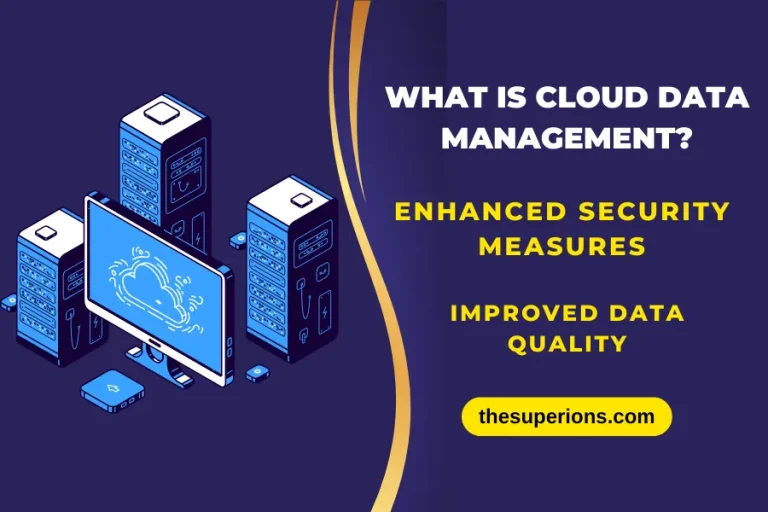Advantages and Challenges of Hybrid Cloud Storage Solutions
The rapid advancements in cloud computing, and data management have made the role of hybrid cloud in next-generation IT infrastructure integral. Most businesses rely on cloud hybrid storage solutions to efficiently run crucial workloads from any location by combining on-premises, private cloud, and public cloud environments.
People Also Read?
The successful adoption of a hybrid cloud strategy begins with thoroughly examining how this cloud computing architecture can effectively drive overall business objectives. As a critical initial step, business and IT leaders must meticulously assess hybrid cloud adoption’s advantages and disadvantages to leverage its benefits fully. Consult with Managed IT Services Miami experts to leverage the power of hybrid cloud storage solutions in your business.
This article will explore the advantages and challenges of hybrid cloud storage solutions.
What is Hybrid Cloud Storage?
Hybrid storage cloud is a type of cloud storage that combines on-premises infrastructure with public and private cloud storage solutions. This approach allows organizations to leverage the benefits of public and private clouds, enabling them to store data in multiple locations while maintaining control over sensitive information.
Utilizing a cloud hybrid storage model allows businesses to optimize their storage infrastructure, improve scalability, enhance data security, and streamline operations. This flexibility and customization make hybrid storage cloud an attractive option for organizations seeking a balance between the convenience of the cloud and the security of on-premises solutions.
Advantages of Hybrid Cloud Storage
1. Scalability and Flexibility
Hybrid cloud data storage offers significant advantages in terms of scalability and flexibility for businesses. One key benefit is the ability to scale resources up or down based on demand. This scalability ensures that businesses can easily adjust their storage capacity to accommodate changing needs without significant upfront investments or disruptions to operations.
In addition, the flexibility of cloud hybrid storage allows organizations to store data across public and private cloud environments, optimizing performance, security, and cost-efficiency. By leveraging the scalability and flexibility of hybrid cloud storage solutions, businesses can effectively manage their data while adapting to dynamic market conditions and technological advancements.
2. Ease into Cloud Migration
When considering a transition to cloud storage, the hybrid cloud approach offers several advantages for businesses looking to ease into cloud migration. By combining on-premises infrastructure with cloud services, companies can gradually shift their data and workloads to the cloud while maintaining some level of control over sensitive information.
This method allows for a more flexible and scalable IT environment, as organizations can leverage the benefits of both public and private clouds based on their specific needs. Furthermore, the hybrid cloud model provides a seamless pathway for companies to adopt cloud technologies at their own pace, reducing potential disruptions to operations and ensuring a smoother transition toward a fully integrated cloud solution.
3. Optimize Workload Resources
One key advantage of hybrid cloud storage is its ability to efficiently optimize workload resources. Organizations can strategically allocate workloads based on their specific requirements by leveraging a combination of private and public cloud solutions.
This flexibility allows businesses to scale resources up or down as needed, ensuring optimal performance and cost-effectiveness. Additionally, cloud hybrid storage enables seamless data transfer between different environments, enhancing operational efficiency and data accessibility.
4. Innovation and Transformation
Storage for hybrid cloud offers a myriad of advantages, particularly in terms of innovation and business transformation. By combining the security and control of private cloud solutions with the scalability and flexibility of public cloud services, organizations can optimize their data management strategies to suit their unique needs.
This innovative approach allows businesses to seamlessly adapt to changing requirements, scale resources as needed, and drive digital transformation initiatives with greater agility. Leveraging the hybrid cloud model enables companies to balance efficiency, cost-effectiveness, and performance, making it a strategic choice for enterprises seeking to stay competitive in today’s dynamic business landscape.
People Also Read?
Challenges of Hybrid Cloud Storage
1. Complexity
Hybrid storage cloud presents challenges in terms of complexity due to its combination of on-premises and cloud-based systems. Managing data across multiple environments can lead to intricacies in data migration, security protocols, and overall system integration.
Organizations must carefully navigate these complexities to ensure seamless operations and data accessibility while maintaining the required security standards. Implementing robust management strategies and leveraging automation tools can help mitigate the challenges posed by the complexity of cloud hybrid storage.
2. Data Consistency
Data consistency is a significant challenge when it comes to hybrid cloud storage. With data stored across both on-premises infrastructure and various cloud platforms, ensuring that all copies of the data are synchronized and up-to-date can be complex. Inconsistencies in data can lead to errors, security vulnerabilities, and compliance issues.
Implementing robust synchronization mechanisms, utilizing encryption for secure data transfer, and regularly monitoring and auditing data consistency are essential steps in addressing this challenge. Organizations must carefully plan and implement strategies to maintain data consistency effectively in a hybrid storage cloud environment to ensure smooth operations and data integrity.
3. Security and Compliance
One of the key challenges of hybrid cloud data storage lies in ensuring security and compliance with regulations. As data is distributed across both on-premises infrastructure and public cloud services, maintaining a consistent level of protection can be complex. Organizations must implement robust encryption, access controls, and monitoring to protect data stored in hybrid environments.
Furthermore, meeting regulatory requirements such as HIPAA adds another layer of complexity, as organizations must ensure that data stored in the hybrid cloud meets specific compliance standards. Visit the IT Support Newton experts to address these challenges effectively and maintain data integrity stored in a hybrid cloud environment.
4. Cost Management
Cost management is one of the key challenges associated with hybrid cloud data storage. While hybrid cloud solutions offer flexibility and scalability, managing costs effectively can be complex due to balancing expenses across on-premises infrastructure and cloud services.
Organizations must carefully monitor usage, optimize resource allocation, and implement cost-control measures to prevent unexpected expenditure spikes. Utilizing monitoring and reporting tools can help track expenses and ensure that the hybrid cloud storage strategy remains cost-effective in the long run.
5. Vendor Lock-in
One of the significant challenges of hybrid cloud storage is vendor lock-in. Vendor lock-in occurs when a company becomes dependent on a particular cloud storage provider and faces difficulties transitioning to another vendor due to proprietary technologies or data formats.
This can limit flexibility and hinder scalability, posing potential risks to an organization’s long-term storage strategy. To mitigate the risks associated with vendor lock-in, businesses should carefully evaluate vendor contracts, ensure compatibility with multiple platforms, and implement strategies for data portability to maintain control over their data assets in a hybrid cloud environment.
6. Performance Issues
Performance issues are a common challenge when dealing with hybrid cloud data storage solutions. Integrating on-premises and cloud-based storage systems can sometimes lead to latency and bottlenecks, impacting the overall performance of the storage environment.
Factors such as network bandwidth, data transfer speeds, and workload distribution play a crucial role in determining the performance of a storage for hybrid cloud setup. Organizations must carefully assess their workload requirements, optimize their network infrastructure, and implement effective monitoring and management tools to ensure optimal performance across both on-premises and cloud storage resources to mitigate these challenges.
People Also Read?
In Conclusion
Hybrid cloud storage solutions offer a range of benefits, including flexibility, scalability, and cost-effectiveness. Organizations can optimize their storage infrastructure by leveraging public and private cloud environments to meet specific needs and requirements. However, implementing and managing a hybrid cloud storage solution has challenges like data security, integration complexities, and potential compliance issues. Despite these challenges, the advantages of hybrid cloud storage make it a compelling option for businesses looking to modernize their storage infrastructure and improve overall efficiency.





